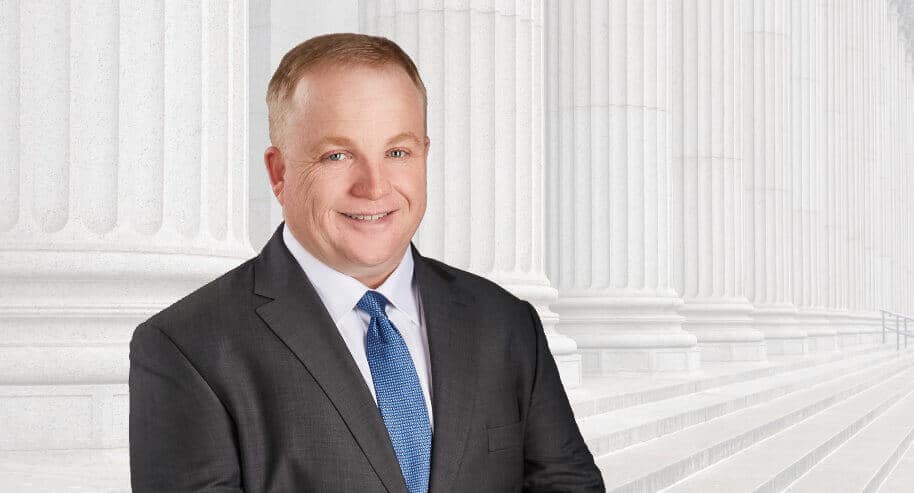
Prior to the legalization of same-sex marriage in North Carolina and throughout the United States, same-sex partners had a difficult time adopting. They would face a number of barriers when trying to adopt a child together, or when one partner wanted to adopt the other’s biological son or daughter.
The hurdles were legal, administrative, and personal. The LGBTQ community now has greater and more equitable access to adoption due, in part, to the skilled help of LGBTQ adoption lawyers.
After the U.S. District Court decision in General Synod of the United Church of Christ v. Cooper in 2014, same-sex marriage became legal in North Carolina. Then, the 2015 U.S. Supreme Court decision in Obergefell v. Hodges made same-sex marriage legal throughout the country. Now that all states within the nation must allow same-sex marriage and recognize same-sex marriages that take place in other states, same-sex couples can adopt similarly to heterosexual couples.
However, there are still complications and hurdles members of the LGTBQ community face, which is why you benefit from the help of an adoption lawyer from Breeden Law Office.
Attorney Jonathan Breeden will guide you through the adoption process and help you grow your family. Call (919) 661-4970 today to schedule a confidential case consultation.
Under North Carolina law, single LGBTQ individuals and married same-sex couples are permitted to adopt. Neither your sexual orientation nor your spouse’s biological sex or gender identity can disqualify you from being an adoptive parent.
If you are an LGBTQ individual, you face the same adoption regulations as any other single individual seeking to adopt a child. If you are a same-sex couple seeking to adopt a child together, you must adhere to the same laws as married heterosexual couples. If you are part of a same-sex marriage and you wish to adopt your spouse’s biological child, you must follow the rules for stepparent adoption.
North Carolina does not allow two adults who are not married to jointly adopt a child, known as second parent adoption. Whether you are involved in a heterosexual or homosexual relationship, you must be married to adopt a child together within the state. You must go through the adoption process in another state, or only one of you will formally adopt the child here.
If you and your spouse wish to adopt a child together, you should speak with an LGBTQ adoption attorney right away. There are numerous ways to go through the adoption process. You may wish to work with an agency, your local social services, or privately through connections within your community. However, you wish to get started, Breeden Law Office is ready to guide you through the adoption process, including the home study, filing an adoption petition, going through a post-placement study, and more.
Breeden Law Office also recognizes that while the law is on your side, you may still face a great deal of discrimination by individuals and private adoption agencies. If you are having trouble finding the friendly and accepting resources you need to get started with adoption, call attorney Jonathan Breeden immediately.
If you are a parent to a child that is biologically related to your partner, you can become the child’s legal parent through the stepparent adoption process. You may be a relatively new stepparent, or that you may have been your child’s parent their whole life. While the term “stepparent adoption” may or may not be accurate, it is a faster process than a traditional adoption. When a stepparent adoption goes smoothly, it can be finalized within six months.
To go through a stepparent adoption, you and your spouse must have been legally married in any state at least six months before you are eligible to file the petition. It does not matter how long your romantic relationship has been, or how long you have lived together – only the duration of your legal marriage counts.
Stepparent adoption requires both of the legal parents’ consent, which is where issues may arise. In addition to consent by your spouse, you will need either a waiver of the other person’s parental rights or a court order terminating the other adult’s parental rights. If the other parent was a sperm or egg donor, you likely already have documentation of them waiving their parental rights.
If this was not done prior to the donation, you will need to address this issue immediately with the help of an attorney. However, if your child has another biological mother or father who may or may not be in the picture, you must either obtain their permission to adopt the child or go to court to attempt to have their parental rights revoked.
If your child’s other parent does not want to give up their rights, you may not be able to go through with the adoption. Additionally, if your child is over the age of 12, you will need their consent to the adoption in writing.
If you and your spouse have been married less than two years, your county’s department of social services will conduct two visits and file a post-placement assessment report with the court. You will also need to pass a 10-year state and federal criminal record check and an abuse registry clearance. When a stepparent adoption involves a marriage of more than two years, the report is not required but is often requested by your local Clerk of Court, who will ultimately approve or deny the adoption.
You and your spouse may choose to have a child through in vitro fertilization or the use of a surrogate. You or your partner may carry the child and use a sperm donor, or you and your partner may choose to use your own sperm and work with an egg donor and surrogate. In either case, one of you will be the biological parent of your baby and the other will not. However, there are ways to ensure you are both the child’s lawful parents when they are born, and that you are both placed on the birth certificate.
If you have documentation that the sperm or egg donor waives parental rights and that you and the biological parent are legally married, then you can seek to both be added to the birth certificate at the time of your child’s birth. North Carolina Vital Records now issues parent/parent birth certificates and not mother/father certificates.
You and your spouse can also create a valid parenting agreement. This is a contract regarding how you two intend to share or divide the rights and duties in regard to the child. By creating a valid co-parenting agreement as soon as possible, even before your child is born, you may solidify your parental rights whether or not you are biologically related or named on the birth certificate.

Breeden Law Office understands how important it is to formalize your parental rights. Without being named on your child’s birth certificate, it can be difficult to enroll your child in school, get the appropriate medical care, and obtain a passport. It consistently falls on your spouse – the child’s biological parent – to not only do everything but also to be the only one receiving information and making major decisions. Despite being fully involved in your child’s life as their parent, administrative policies will push you out of the picture.
By properly preparing for your child’s birth or going through the adoption process, you can become your child’s legal parent and be placed on their birth certificate. To learn more about adoption, contact LGBTQ adoption attorney Jonathan Breeden at Breeden Law Office.
Call today at (919) 661-4970 to schedule your initial consultation, or contact Breeden Law Office online.
Call Breeden Law Office today:
Call (919) 661-4970